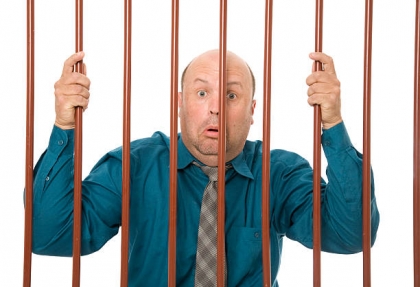Let Go of False Hope and Break Free from Unhealthy Relationships
When you’re caught in an unhealthy relationship, it’s natural to hold onto hope that your partner will change, especially during those fleeting moments of harmony and happiness. But this hope can keep you stuck in a harmful cycle, focusing on the potential for things to get better while overlooking repeated patterns of hurt and disappointment.
In healthy relationships, there are natural ebbs and flows - periods of harmony, disruption, and genuine repair. Conflict is managed constructively, deepening trust and connection. In contrast, unhealthy relationships often lack this healthy repair cycle, leaving one partner feeling unheard, blamed, or silenced while the other avoids accountability.
The Unhealthy Relationship Cycle
Most relationships begin with both partners presenting their best selves, enjoying a period of mutual discovery and deepening affection. During this early phase, conflict is rare, creating an illusion of a perfect match. However, as commitment grows, challenges inevitably arise. Couples lacking the tools to navigate these challenges can find themselves in turbulent cycles.
In unhealthy dynamics, one partner may consistently:
- Refuse to take responsibility, shifting blame onto the other.
- Withdraw emotionally, using silence as punishment.
- Appear to take ownership but ultimately make the other partner feel at fault.
- Assert superiority, demanding agreement or compliance.
In response, the hopeful partner may tolerate these behaviours to maintain a temporary sense of peace, accepting blame, begging for communication, or pretending to agree just to restore harmony. But it’s only a matter of time before the cycle repeats.
The Illusion of Harmony
Moments of harmony in these cycles often act as superficial “repairs,” creating false hope that things will improve. These brief positive experiences can overshadow deeper, unresolved issues, making it easy to deny the seriousness of the problems at hand.
Why Embracing Conflict Matters
Many people wonder how to avoid falling into unhealthy patterns when seeking a partner. The answer lies in embracing conflict during dating. Being authentic, expressing your needs, and engaging in healthy disagreements help reveal a partner’s willingness and ability to resolve issues respectfully.
Thriving relationships are not defined by a lack of conflict but by the ability to navigate it safely and constructively. True repair fosters deeper trust and connection, allowing both partners to feel seen and valued.
Letting Go of the Hope They Will Change
If you find yourself in a relationship where conflicts are consistently handled unfairly and your needs are dismissed, it may be time to consider steps toward reclaiming your well-being and autonomy.
Reflect on Your Reality
Take a clear look at your relationship. Are you truly happy, or are you holding on to the hope of change? Identify your needs, desires, and boundaries.
Seek Support
Reach out to trusted friends, family, or a therapist who can offer emotional support and clarity as you assess your situation.
Set Boundaries
Clearly communicate your feelings and boundaries with your partner. While this may sometimes lead to positive change, it will also clarify where your relationship stands.
Consider Professional Help
Individual or couples therapy can help navigate your emotions and provide strategies for handling conflict and decision-making.
Evaluate Objectively
Weigh the positives and negatives of the relationship. Consider whether the effort to salvage it aligns with your well-being and long-term happiness.
Understand Legal and Financial Considerations
If your relationship involves legal or financial ties, consult a professional to understand your rights and responsibilities.
Plan for Independence
Begin taking steps toward independence, whether that means securing housing, financial stability, or a supportive community.
Prepare for Emotional Change
Leaving a long-term relationship can bring complex emotions. Be patient with yourself and seek support as needed.
Prioritise Self-Care
Focus on your physical and emotional well-being during this transition. Engage in activities that bring you joy and foster healing.
Take Decisive Action
Once you decide to end the relationship, commit to your plan and follow through, seeking guidance from professionals or support groups when needed.
Moving Toward a Healthier Future
Ending an unsatisfying or abusive relationship is challenging but often essential for personal growth and peace. You deserve a relationship grounded in mutual respect, care, and healthy communication.
By taking these steps and seeking the right support, you can break free from harmful cycles, reclaim your life, and open yourself to the possibility of healthier, more fulfilling connections in the future.




















